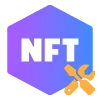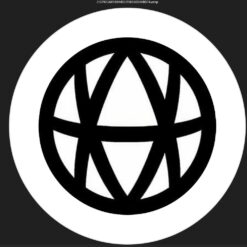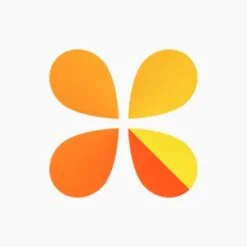About Opensea
OpenSea is the largest and most well-known NFT marketplace in the world, providing a platform for buying, selling, and discovering non-fungible tokens (NFTs) across a wide range of categories, including art, collectibles, virtual real estate, music, domain names, and more. Launched in 2017, OpenSea has played a pivotal role in the growth of the NFT space, offering a user-friendly interface, robust marketplace features, and supporting multiple blockchain networks.
Here’s an overview of OpenSea and its key features:

Key Features of OpenSea:
- Marketplace for NFTs:
- OpenSea is a peer-to-peer marketplace where users can buy and sell NFTs directly. It hosts a wide variety of digital assets, including artwork, gaming items, virtual goods, collectibles, and metaverse assets.
- It supports NFTs across multiple blockchains, including Ethereum, Polygon, Klaytn, and Solana, allowing users to engage with a diverse range of assets from various ecosystems.
- User-Friendly Interface:
- OpenSea is known for its intuitive, easy-to-navigate interface. Users can search, filter, and sort NFTs based on collection, price, rarity, creator, and other factors.
- The platform supports features like bidding, auction-style listings, and direct purchases, making it simple for both creators and collectors to engage with NFTs.
- Wide Range of NFTs:
- OpenSea offers an extensive array of NFTs, including:
- Digital Art: Rare and collectible artworks from artists worldwide.
- PFP (Profile Picture) Collections: Popular projects like Bored Ape Yacht Club, CryptoPunks, Moonbirds, and others.
- Gaming NFTs: In-game assets, skins, weapons, and characters from blockchain-based games.
- Virtual Real Estate: NFTs representing land and properties in virtual worlds like Decentraland and The Sandbox.
- Music and Audio: Music artists minting tracks, albums, and exclusive content as NFTs.
- Domain Names: Digital assets like .eth domain names, typically used in the Ethereum Name Service (ENS).
- OpenSea offers an extensive array of NFTs, including:
- Creator Tools and Royalties:
- OpenSea provides tools for creators to mint and list their NFTs easily. Creators can upload their digital assets, set their prices, and list them for sale.
- One of the platform’s standout features is its royalty system. Creators can set a royalty percentage for secondary sales, meaning that they receive a percentage of the sales whenever their NFT is resold on the platform.
- This royalty system is enforced on-chain, ensuring that creators are compensated automatically for secondary market sales, which is a crucial incentive for many NFT artists.
- Gas-Free Transactions with Polygon:
- OpenSea supports Polygon, a Layer 2 solution for Ethereum, enabling users to make gas-free transactions on the platform. This reduces the cost of minting and trading NFTs, making it more accessible to users who may find Ethereum’s gas fees prohibitive.
- Polygon allows for faster and cheaper transactions while maintaining compatibility with Ethereum-based assets.
- OpenSea Pro (formerly Gem):
- OpenSea Pro is a more advanced version of the marketplace designed for professional NFT traders. It provides advanced features such as bulk buying and selling, analytics tools, and cross-platform compatibility, allowing traders to seamlessly navigate and trade across multiple marketplaces.
- This feature is aimed at more experienced users, such as NFT investors and those looking to manage large collections.
- Smart Contracts & Security:
- OpenSea leverages Ethereum smart contracts to manage transactions and ensure security. These contracts are open-source and operate transparently, which ensures the legitimacy of transactions.
- OpenSea also supports Metamask and other crypto wallets for secure user authentication and transactions, offering a decentralized and trustless experience for buying and selling NFTs.
- Search and Discovery Tools:
- OpenSea provides multiple search and discovery options for users to find new and interesting NFTs. These include sorting by trending collections, top sellers, and most popular items.
- The marketplace also includes artist profiles, allowing users to explore the works of specific creators and follow them for updates on new drops.
- Auctions and Fixed-Price Sales:
- Auctions: Users can list their NFTs for auction, allowing buyers to place bids. The auction process allows sellers to potentially get higher prices depending on demand.
- Fixed-Price Listings: Sellers can also set fixed prices for their NFTs, allowing buyers to purchase them at a set price without bidding.
- Mobile and Web Apps:
- OpenSea offers both web and mobile applications, allowing users to browse, buy, and sell NFTs from both desktop and mobile devices. The mobile app enables users to engage with the NFT marketplace on-the-go.
How to Use OpenSea:
- Creating an Account:
- To start using OpenSea, users need a Web3 wallet such as MetaMask, Coinbase Wallet, or Fortmatic. Once connected to the wallet, users can begin browsing, buying, and selling NFTs on the platform.
- Buying NFTs:
- Once a user has connected their wallet, they can browse available NFTs and make purchases. Payments are made with cryptocurrency (typically ETH for Ethereum-based NFTs, though OpenSea also supports other blockchains).
- Users can place bids on NFTs listed in auctions or buy them at a fixed price.
- Selling NFTs:
- Users can mint and list their NFTs for sale on OpenSea by connecting their wallet, uploading their digital content, and choosing a price (either fixed or auction-based).
- When a sale is made, the proceeds (minus OpenSea’s small fee) are sent to the seller’s wallet, and the NFT is transferred to the buyer.
- Minting NFTs:
- OpenSea allows creators to mint NFTs directly on the platform. Creators can upload digital files (artwork, music, videos, etc.) and create NFTs associated with those files. Once minted, the NFTs can be listed for sale or auctioned.
- OpenSea also provides an NFT collection manager for creators who want to organize their assets into collections (e.g., all artwork from a specific artist or series).

OpenSea’s Fees and Revenue:
- Seller Fees: OpenSea charges a 2.5% fee on the sale price of every transaction (both primary and secondary sales) made on the platform. This fee is deducted from the transaction before the seller receives the proceeds.
- Creator Royalties: In addition to its marketplace fee, OpenSea enforces creator royalties. Creators can set royalty percentages for secondary sales of their NFTs, ensuring they receive ongoing compensation for each resale.
OpenSea’s Role in the NFT Ecosystem:
- Market Leader: OpenSea is the largest NFT marketplace by volume, contributing significantly to the mainstream adoption of NFTs. It serves as the go-to platform for many NFT creators, collectors, and traders.
- Community: OpenSea has played a key role in fostering an active, vibrant NFT community. Through events like NFT drops, artist collaborations, and community engagement on social media, OpenSea has helped build a global ecosystem around digital collectibles.
- Access to DeFi: As NFTs grow in importance, platforms like OpenSea are beginning to integrate more with DeFi (Decentralized Finance) applications, allowing for NFT-backed loans and other financial innovations.
Challenges and Considerations:
- Gas Fees on Ethereum: While OpenSea has integrated Polygon to provide cheaper and faster transactions, Ethereum gas fees can still be a barrier for some users, particularly during periods of high congestion. This can make it costly to mint, buy, or sell NFTs on the Ethereum blockchain.
- Competition: OpenSea faces competition from other NFT marketplaces like Rarible, SuperRare, Foundation, and LooksRare. These competitors offer unique features and community-focused models, which could affect OpenSea’s market share in the long term.
- Security and Scams: As with any popular online platform, OpenSea is not immune to fraudulent activity. Users need to be cautious about phishing attacks, fake listings, and scams when buying and selling NFTs.

OpenSea is the largest and most popular NFT marketplace for digital collectibles, offering a broad selection of NFTs across various categories like art, gaming, virtual real estate, and more. Its user-friendly interface, support for multiple blockchains (including Ethereum and Polygon), and focus on creator royalties have made it the go-to platform for both new and experienced collectors and creators.
For users looking to buy, sell, or mint NFTs, OpenSea provides a comprehensive, secure, and efficient platform. However, users should be mindful of the gas fees, market volatility, and potential security risks associated with the space. As the NFT market continues to evolve, OpenSea remains a pivotal player in the ongoing development of the Web3 ecosystem.

Collections























vorbelutrioperbir –
I’ve read several excellent stuff here. Definitely value bookmarking for revisiting. I surprise how a lot effort you set to make such a wonderful informative site.
Harran –
nice
Eyad –
good
Mg Kame –
Good